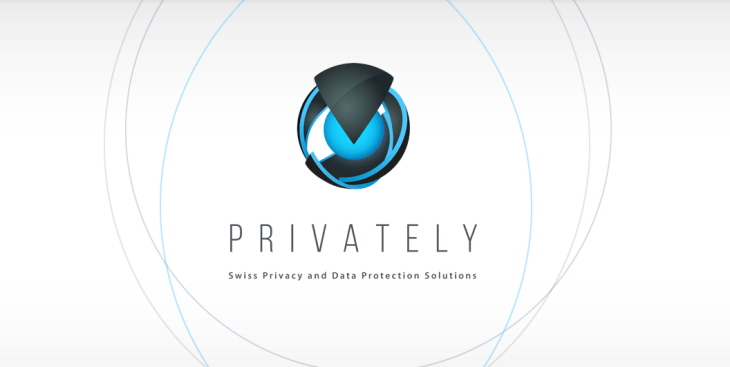A Swiss spin-out startup from security firm Kudelski has relaunched its controlled social photo-sharing app, rebranding it as Privately. The earlier timebombing iOS app — called Secret.li — also let users share visually encrypted photos on mainstream social networks in an ephemeral way, choosing to have the photos disappear after a pre-set interval.
Secret.li gained around 10,000 downloads and some 4,000 active users over its 1.5+ year lifespan, so was clearly ploughing a pretty niche furrow. That app will now be entirely replaced by Privately, which has Android support, not just iOS. But the main shift here is the startup is looking to polish up a data protection-focused b2b business, using a consumer app as a showcase to sell services to telcos.
Since Secret.li launched there has been an ongoing drip-feed of digital privacy revelations, in the wake of NSA whistleblower Edward Snowden’s release of documents detailing government security agency surveillance activities online. The Snowden revelations coincided with the European Commission reworking Europe’s data privacy directive — a piece of EU work that’s still ongoing. Concerns about the data protection compliance of cloud services is something Privately is evidently hoping to capitalize on.
The focus for the consumer Privately app continues to be on letting users share their content in a circumscribed way: so rather than handing over all their data (i.e. the photo and its metadata) to a third party social network perhaps headquartered in another country — thereby letting that outside service data mine/share their photo data with whatever third parties it chooses — Privately steps in as a localized layer, stripping out photo metadata, encrypting images and then circulating them (via its viewer) on these social platforms, with adde user controls — such as the ability to delete them after the fact.
The app does not prevent photos being saved or screengrabbed, once the recipients have viewed them in their visually decrypted form, but the team says it will be including a watermarking feature in a subsequent version that will help users trace any photo leakers.
Nor is the startup offering to step out of the encryption loop itself at this point — it does hold encryption keys, so could technically decrypt users’ data itself (so privacy-concerned users of Privately will still have to trust that it’s not peeking at their stuff). But it says it’s willing to move with market demand there. And touts the specialist encryption knowledge, via its security firm background, to be able to implement symmetric and end-to-end encryption if its telco clients require.
The rebranded consumer app is intended as a front-end showcase of the custom service it’s pitching at telcos and device makers — offering a custom version of the app they can pre-load or add to a store, with additional features (such as support for videos and documents as well as photos), plus local storage to help them meet data protection compliance regulations in their particular region. (Encrypted content related to its consumer app remains located in Switzerland and is “handled in accordance with European data laws”.)
So far, the team has signed up Indian mobile maker Lava to pre-load its app onto its own-brand handsets — so users will be able to select to share via the Privately encrypted lens at the point of snapping a photo or uploading it to a social network from their camera roll. It says it’s also discussions with multiple European and one Asian telco.
Why should telcos care about privacy? Compliance with data protection regulations is likely to be the biggest motivator, especially as and when new regulations come into force. The other reason might be to appeal to consumers who are growing concerned about their data being tracked and snooped on — so as a user acquisition/retention strategy (and thinking of the popularity of ephemeral messaging platform Snapchat).
The basic consumer Privately app is freemium, with in-app purchases set to be added to offer another revenue stream down the line, in addition to the team’s b2b business.
As well as Android support, other new features in the Privately consumer include a one-stop delete button, which lets users delete any content they have previously shared via the app — including any comments they have made. Twitter support is also new (Secret.li was focused on Facebook sharing).
[gallery ids="1120311,1120312,1120313,1120314"]
